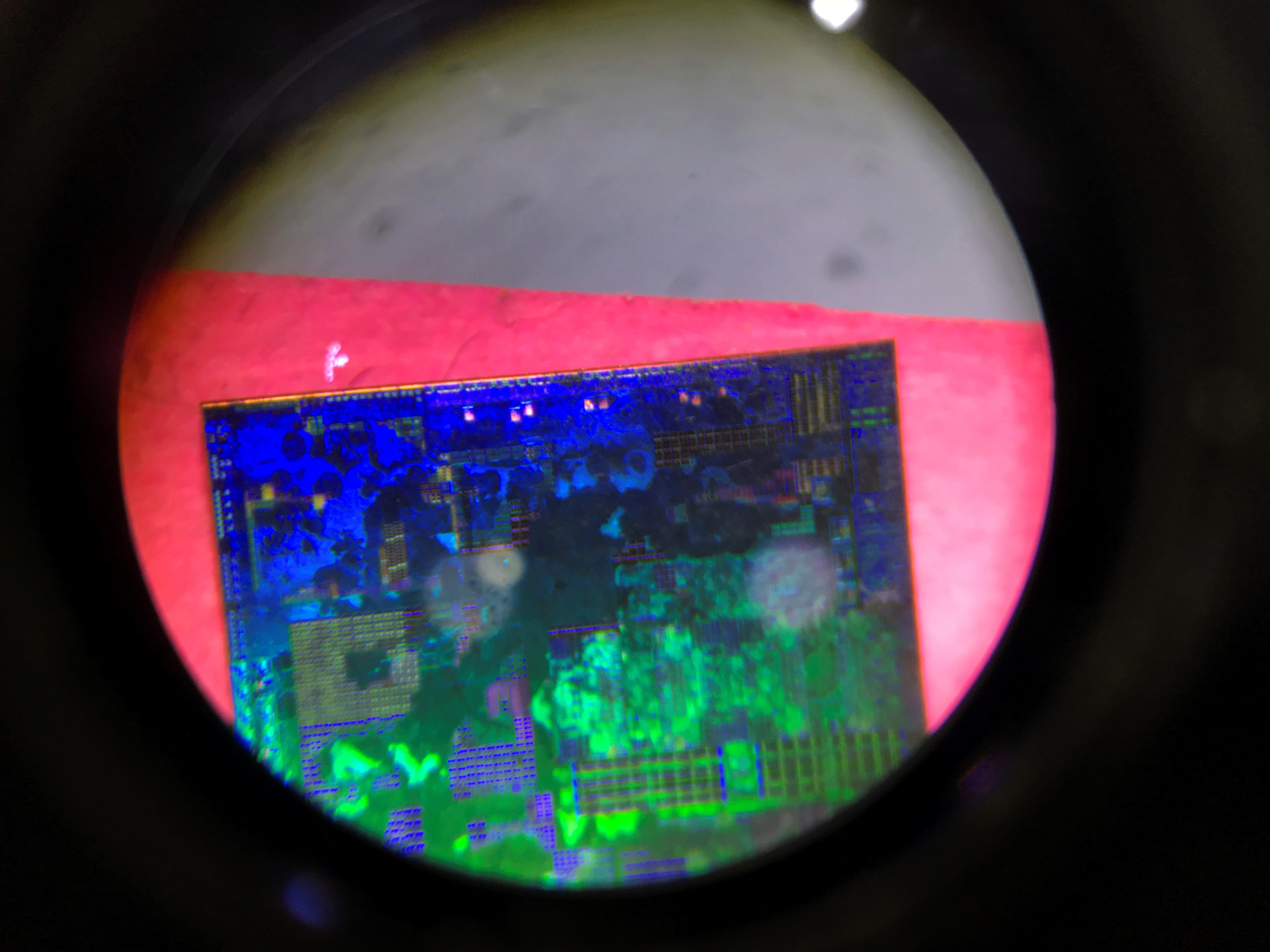US escalates chip war with China, blacklists 35 Chinese companies
The US Department of Commerce has added about 3 dozen Chinese companies to its "Entity List."
-

A Chinese microchip is seen through a microscope set up at the booth for the state-controlled Tsinghua Unigroup project which is driving China's semiconductor ambitions during the 21st China Beijing International High-tech Expo in Beijing, China, on May 17, 2018 (AP Photo/Ng Han Guan, File)
The US Department of Commerce is adding 36 Chinese high-tech companies, which include manufacturers of aviation equipment, chemicals, and computer chips, to the export controls blacklist, citing "national security" concerns, US interests, and very unsurprisingly, human rights.
Adding the companies to the "Entity List" would entail that export licenses for US companies intending to do business with said companies will be rejected. Companies abroad also looking to do business with the blacklisted ones will, in some cases, be forced to comply with Washington's requirements under certain laws that gives the US the right to play police on an international scale.
The sanctions are allegedly aimed at impeding Beijing's ability to use high-end US technology for military uses, including the development of weapons. They prevent US companies from exporting technology to Chinese companies or entities producing high-end chips in modern devices, in addition to the latest-developed electric vehicles, smartphones and artificial intelligence.
This would mark the latest move in the ongoing escalation that Washington has been waging against Chinese tech.
On Monday, China filed a case with the World Trade Organization, hitting back against US export sanctions on microchips. China's ministry of commerce said its WTO complaint was a legal and necessary measure to defend its "legitimate rights and interests."
The complaint would mark the first step in a WTO mediation process, where the case would normally be put before the Appellate Body - however, the body has been suspended due to disagreements among member states.
The US sanctions shook the global semiconductor supply chain, revealing China's importance in global chip production. Ironically, US chip firms bear the brunt of their own country's decisions, especially as China serves as their largest market, accounting for 33%, 31%, and 27% of Applied Materials, Lam Research, and Intel, respectively.
It's noteworthy that US President Joe Biden signed legislation in August providing $52 billion in subsidies for domestic semiconductor manufacture.
The semiconductor industry has gained increased geopolitical prominence as China accused the US bill of threatening global supply chains and hampering international trade.
Global shortages of computer chips, prompted by the coronavirus pandemic and the conflict in Ukraine, have caused production delays on a global scale for technology companies and other manufacturers.
Infograph: Netherlands in the middle of the US-Chinese chip war
Tech companies have been racing to diversify production locations and capacities amid the global struggle between powers, mainly China and the US, to gain tech superiority and establish world dominance in the industry.

 3 Min Read
3 Min Read








